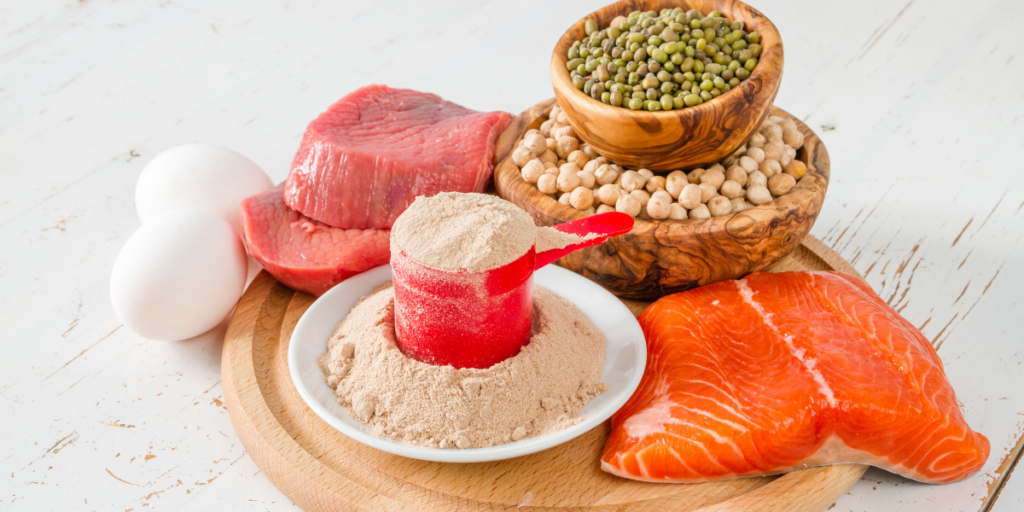No products in the cart.
The Ultimate Guide to Whey Protein, Caffeine and Creatine

The world of supplements is confusing and daunting, where the market nowadays is overflowing with new products, health claims and much more. It can be extremely difficult to know which supplements to take, what they are used for, and how to take them. Supplementation is a wonderful way of meeting your daily nutritional needs, helping you push through a gym workout, and aid in mass gaining.
Always remember that supplementation alone will not get you your dream body. It is a combination of diet, exercise and sleep. You need to be on top of all three in order to achieve your goals – supplements are not replacements!
If you’re new to the fitness game, here are the basics of what supplements are useful for the beginning of your journey.
The Ultimate Guide to Whey Protein, Caffeine and Creatine
Creatine Monohydrate:
Creatine is the energy substrate that is stored in the body, and is mainly used for high intensity but short bursts of work. Creatine is the first source of energy to be used when you are sprinting or lifting super heavy weights.
Creatine is now available as a supplement, that can be useful in increasing your performance, allowing you to go for longer without fatiguing at the gym. Therefore, this can help boost your muscle mass growth potential, as your workouts will become more efficient and effective. There are tons of creatine supplements to choose from, ranging from $6+.
To start, take a dose of 3-5g per day, in order for your muscle cells to slowly adapt to the creatine and take it in.
If you would like to quickly load on creatine, you can consume 20g of creatine per day for a week, and lower the dose to 3-5g afterwards.
Whey Protein:
Perhaps one of the most widespread supplements in the fitness world, whey protein is one of the foundational ingredients in any diet. Whether your goal is to build mass, lose weight, gain strength or define your muscles, whey protein is an excellent supplement to add to your diet.
Whey is a protein isolated from milk, and is extremely easy to digest by the body. It is quickly digested and utilized by the muscle cells. Whey protein contains leucine, which is the branched chain amino acid that is responsible for stimulating muscle protein synthesis. In simple terms, leucine causes your muscles to grow!
As protein is essential for muscle mass growth and repair, it is suggested that athletes consume twice the amount of protein that is recommended per day. This equals about 1.5g protein/kg bodyweight. If you are finding it difficult to meet this requirement with strictly diet, you can use whey protein as a way to meet your daily targets.
Before you start chugging down the whey protein, here are things to take note of:
1) Read the label before you buy:
Tons of whey protein products contain added sugars and carbohydrates. If your aim is to lose weight, this can hinder your weight loss significantly. Always opt for whey protein that provides no more than 100 calories per scoop, with minimal fat and at least 20g of protein.
2) Consume your whey protein straight after your workout:
Evidence suggests that consuming protein right after a workout will aid in quicker muscle recovery and growth. Timing is essential and can make a difference in your overall progress.
Dose:
If you are trying to build mass, consume your whey protein at 20-30g per portion right after a resistance workout. If you are trying to lose weight, whey protein can be a great meal replacement/snack that will keep you full for a couple of hours, without having to consume tons of calories. Mix your whey with milk or water, or blend into your smoothies for a superfood boost!
Caffeine:
For all those coffee lovers out there, caffeine is not just the perfect thing to get you out of bed in the morning! In fact, caffeine supplementation is an extremely effective way at increasing your focus at the gym, allowing you to power through a workout and maximize your potential. As caffeine boosts cognitive function and concentration, you will feel energized during exercise.
Dose:
If you are not a caffeine-junkie, maybe start off slow! Take around 100 mg of caffeine an hour before your workout. If you consume caffeine on a regular basis, take around 250mg 30 minutes before your workout. Limit your daily caffeine consumption to around 400 mg per day, as you may experience jitters and side effects.
So, there you have it! These three supplements are fantastic to supplement a beginner’s fitness journey. Start with these supplements before you dive into the rest!
